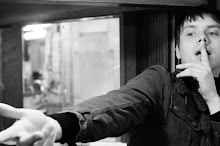Return to Kurdistan - Day 1
It almost feels like a miracle as Charlie and I spot each other on Enquab Square in Sanandaj, capital of Iran's Kordestan province. It's 10 am and the streets are bursting with life - homicidal taxi drivers, crippled beggars, Kurdish women in colourful sequinned dresses, Iranian women in black chador, Kurdish men in boiler suits with head-scarves, Iranian men in shirt and pants. It's a world away from any other Iranian city. We go to have breakfast in the bazaar and an old Kurdish man insists on paying for our meal. Still, we have one problem - we know where we want to go, but don't know how to get there and lack a decent map.
First, we try a bookshop. The friendly owner digs and digs behind a pile of books, and emerges with a map only slightly better from what I already have. We try a travel agent - they try to get us a taxi driver. We try the museum - only the poor map I recieved the day before. Finally, I decide to try the army base, not being quite sure whether it's an army base or home of the dreaded "Komiteh" religious police. The soldiers are friendly, but we get directed to the museum. So much for the map.
Giving up, we do our food shopping. First, some dry fruit - apricots and figs, then some cheese. This is a problem, as every shop we go to only has one box, and we want two. At last we go to a bread factory - fresh pieces of levan rolled out on a conveyor belt. Two guys who speak some English walk by. We talk to them and they take us to their friend who might have more information. This is a bad idea. Within minutes, a crowd of people has gathered around us. Some people say the security situation on the road is dangerous. Some say the river has flooded. An English teacher comes past and tells me not to listen to anyone. We take his advice.
Half an hour later we are on a minibus headed for Sarvabad. We only know this : it's the closest town to Owramantakht (where we want to go). Getting off, we rush to the first shop with a old Kurdish man, hoping for some advice. Unfortunately, he panics at having to talk to a foreigner and a crowd of high-school students take his place. Some tell us it's dangerous. Others say it's impossible. We head for the army base. The bemused officer tells us to take a taxi. I suggest to Charlie that we cross the river and visit the village on the other side.
Within a few minutes we are tramping through fragrant flowering meadows, surrounded by some local villagers. They point out the bridge and a path in the steep mountainside above the village. The village is very friendly - 3 invitations for tea which we unfortunately have to refuse, with only 3 hours of sunlight. We scramble up the mountain and are hit by a thunderstorm. 10 minutes under a boulder and the sun is shining again. We meet an old man, his son and their donkey. He tells us it will take 3 days to Owramantakht. The son seems to think otherwise.
Another thunderstorm, another boulder. We meet a group of local men. They give us the names of 3 villages and videotape the conversation. We keep walking, amazed by how lush the vegetation is. Travelling with Charlie gives me a new perspective on the world thanks to his botanical expertise. Finally, we see some goats on what becomes a shelf above a steep canyon. I look closer and spot stone houses.
It's like stepping 500 years back in time : no running water, no road, no electricity, everyone in traditional dress. We meet Rafool who knows a few words of English, and ask him if we can pitch a tent. He won't hear of it. He rushes us to the nearest hut and begins to toss aside the borders which block the door. 10 minutes later his mother appears, with a woolen floor mat. 10 minutes after that, she re-appears, this time with a jug of sour goat milk, a basket of bread and a bowl of panir. Some other people come - firewood, blankets, pillows. We protest, "no, we have food, we have tent", gesticulating feverently and pointing at our packs.
They simply won't hear of it. It turns into a big party, with half the men of the village gathered around the fire inside the hut. When they see we are tired, they all leave. We fall asleep quickly, watching the twinkling lights of Sarvabad below.


0 Comments:
Post a Comment
<< Home